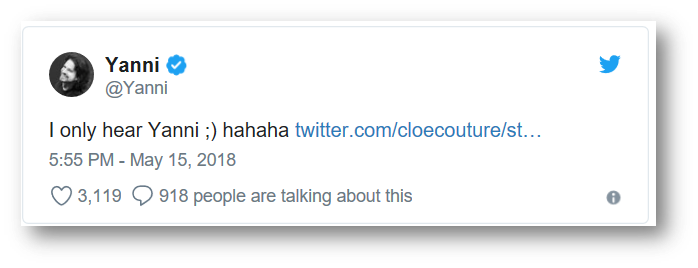
Sometimes I find myself getting distracted from my own blogging. For example, I was in the middle of writing this post about how Amazon Alexa technology is now being built into into new homes by one of the biggest construction companies in the U.S. – Lennar. And then an even more intriguing story about the power of voice popped up on our radar screens.
But first, the original story that reinforces the growing pervasiveness of smart speakers in our world…
USA Today reports that homebuilders are becoming more cognizant of residential technology features – operation of lights, blinds, sprinkler systems, doorbells, security systems. And they’ve decided the controlling authority over all this gadgetry will be…yes, Alexa.
Lennar thinks it will have an edge over its competition by embedding Amazon’s platform into their homes seamlessly. In this way, homeowners won’t have to cobble together competing “voices” from Google and Apple, outside content sources, and other disparate pieces. Lennar and Alexa will do it all for them.
Not suprirsingly, Amazon is on board big-time. They’re supplying trained Smart Home Services techs who sset up the systems, work with new homeowners, and teach them how to use them.
And why not? They’re trying to protect a healthy, but not insusrmountable lead in the smart speaker race over their key competitors. In much the same way radio was good at persuing key listening locations (home, car, work), Amazon is rushing headlong into owning as much “voice real estate” as it can.
Given that Lennar builds nearly 35,000 homes in nearly half the states in the union, the U.S., the Alexa footprint will grow even faster. And as the families that buy and move into these homes become accustomed to this proprietary voice technology, it’s logical to assume they’ll want to take it with them – to college, to their next homes, apartments, and workplaces. In much the same way a decade ago, Apple built its advantage first with iPhones, and then iPad, and Apple CarPlay, encouraing consumers to remain loyal to their ecosystem.

That’s a pretty interesting story, and one that speaks volumes about Amazon’s plans to dominate this massive vertical known as “voice.”
But earlier this week, one of those weird Internet memes broke out that has captured a lot of online attention. By now you have no doubt heard of (and may be sick of) the “Yanny vs. Laurel” brouhaha.
Like a lot of these hyper-viral Internet gimmicks (hard to forget the “Ice Bucket Challenge”), “Yanny vs. Laurel” simply involves interpreting a robot voice and precisely what name it’s been uttering.
In between its coverage of the Gaza riots, the North Korea nuke talks, and the Mueller probe, The New York Times’ investgative reporting unit tracked the original of this meme down, and even offered its own online “voice slider” designed to help you hear the name(s) uttered by this droid voice.
Of course, the whole incident was innocently started by a high school student who was playing computerized vocabularly pronunciation clips. Yes, the machine voice was asked to say “laurel,” but to millions, it sounds like “yanny.”
Including of course, Yanni.

It would be easy to write this one off as just another lame Internet fad gone viral. After all, we’ve seen them come and go, whether it was identifying the color of the dress or having fun with “covfefe.”
But this one’s about a name, a voice, a sound. And it has a familiar ring to it. Every time Alexa, Siri, the Google voice, or the robotic voice in our cars screw up, misinterpret, or misprnounce something, we take notice.
This time, it’s an odd reversal – a robot voice saying something, and our own personal “voice recognition software” (in other words, our ears) are having trouble understanding what we’re hearing.
We’re trying to figure out the machines, while the machines are trying to figure out us.
It’s a reminder the gadgets we call smart speakers are just the conduits for the rising power of voice – a technology that is rapidly changing the way we consume content, and perhaps run our lives.
Unlike this disposable meme, voice isn’t a fad. It’s not going away.
It’s a trend. And a big one.
And it’s one that will have a huge effect on media companies, verticals, and brands.
And us.
It’s more than just a new platform. It’s a major movement, and it’s happening right before our very…ears.
Yes, the jacapps team is developing “skills” for Alexa under the SonicAi banner and we love to talk “voice strategy.” Contact Sari at jacapps here.
- What To Do If Your Radio Station Goes Through A Midlife Crisis - April 25, 2025
- A 2020 Lesson?It Could All Be Gone In A Flash - April 24, 2025
- How AI Can Give Radio Personalities More…PERSONALITY - April 23, 2025




But, Fred…you didn’t tell us what name YOU heard! Inquiring minds wanna know!
(I heard Laurel)
-JC
I hear cash registers ringing at Amazon. 🙂
Just purchased – for under ten bucks (!) – a device from Zero Touch that puts Alexa into my 12 year old biodiesel jeep…and it works OK…a 2006 sorta connected car. Then woke up this morning to find that Tivo has incorporated Alexa into its system..took about two minutes to connect and we’re voice controlling our viewing…JacApps continues improving Alexa skills for radio…. this really is a revolution , not to be ignored…much more than a shiny object.
Absolutely, Tom. The technology is coming to multiple devices and platforms…and quickly. Thanks for the tech update, and as always, for your comments.